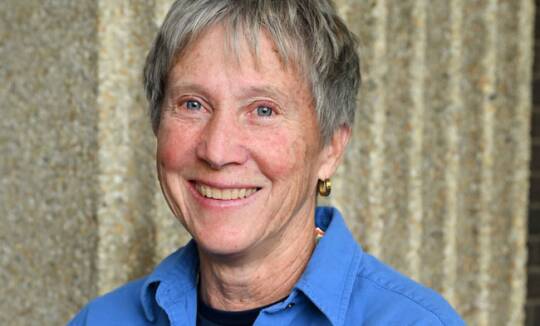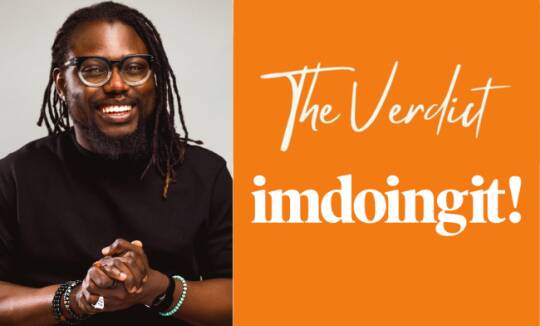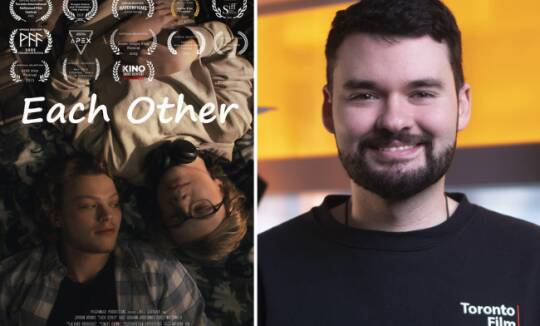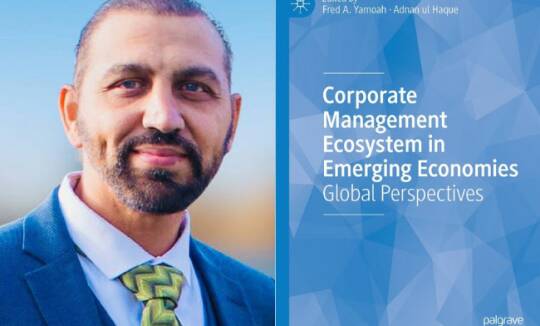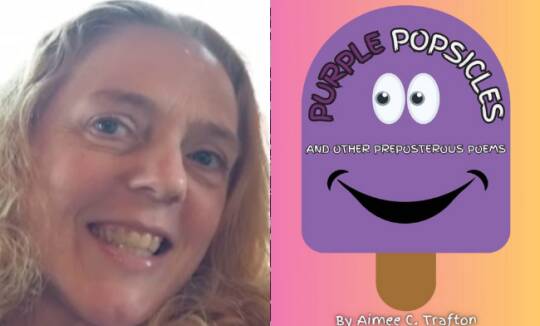Emersyn Nash waited 12 long years to fulfill her lifelong goal of pursuing a master’s degree – but now that she’s been named Yorkville University’s 2023 Master of Arts in Counselling Psychology valedictorian, she’s pretty sure it was worth the wait.
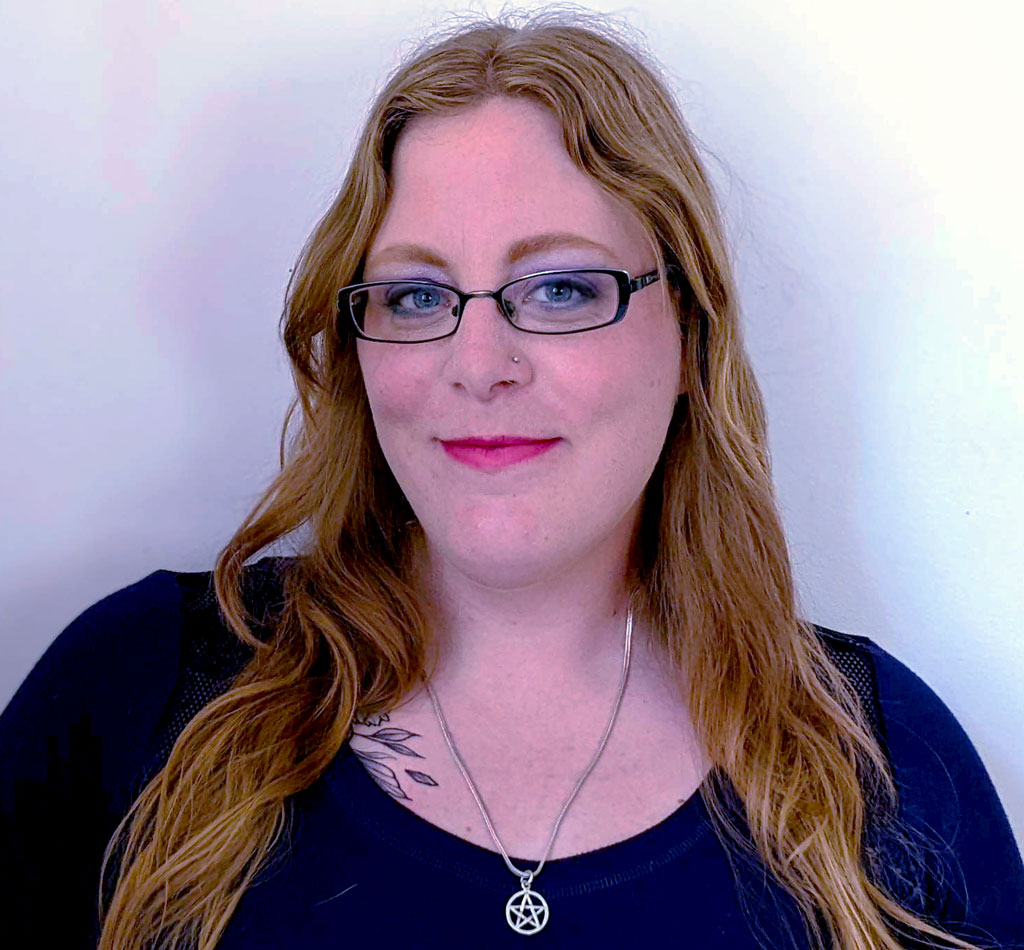
“It has been a lifelong aspiration of mine to work as a psychotherapist,” said Nash, who hopes to open her own private practice one day.
“As most of my peers, the personal motivations for doing so are varied and founded in my personal experiences with mental health, coupled with a desire to extend my compassion, empathy and capacity to hold space for others in a meaningful way that honours my innate talents and, hopefully, makes a difference in the world.”
During her online studies at Yorkville, Nash’s enthusiasm for and commitment to learning, expanding her knowledge and understanding, and challenging herself to integrate what she learned helped her undergo what she characterized as an “incredible personal evolution.”
Recognized by her classmates for her warm, kind and gentle attitude, as well as her depth of knowledge, Nash quickly became a student leader, sought out by her peers for her insight and guidance.
Since finishing her studies at Yorkville, Nash has been working alongside her clinical supervisor in private practice – but her ultimate goal, she said, is to ‘harness the power of personal and societal transformation made possible through the art of psychotherapy.”
Nash recently sat down to reflect on her time at Yorkville University and her plans for the future. Here’s what she had to say:
What brought you to Yorkville University? Where were you in your life/career when you decided to continue your studies with us?
Upon graduating from my undergraduate degree program, I was interested in pursuing my master’s degree. Unfortunately, this was during the 2008 recession period, and it was at this time I was offered the security of a career. It was a matter of making a decision that secured my financial wellbeing at the detriment of pursuing a dream that I had for myself. It was my ultimate goal to return to academia to pursue my master’s degree when I had the financial security to do so, but self-doubt took hold and I grew comfortable in the safety of a career that came easily to me and in which I had secured a measure of success. However, after an unfortunate series of traumatic and challenging experiences, I was confronted with the reality that my life was not unfolding in the way that I desired – I recognized that I had been struggling with a sense of disempowerment for too long and it was time to reclaim my life by actively chasing my dreams, even if the conditions of doing so were less than ideal. I chose to attend Yorkville because the virtual learning platform appealed to my personal needs while supporting me in acquiring the skills needed to pursue a profession that I am passionate about. The flexibility that the virtual format granted me was essential to balance all areas of my life in a healthy manner, but it was also supportive of my learning style, contributing to my overall success.
What made you decide to pursue your Master of Arts in Counselling Psychology?
It has been a lifelong aspiration to work as a psychotherapist. As most of my peers, the personal motivations for doing so are varied and founded in my personal experiences with mental health, coupled with a desire to extend my compassion, empathy and capacity to hold space for others in a meaningful way that honours my innate talents and, hopefully, makes a difference in the world. I’m passionate about the value and significance that a therapeutic relationship can offer an individual seeking to confront and work through their personal and relational goals. I strongly believe that our communities and relationships thrive when individuals feel empowered to live in alignment with their values and dreams, and when they can bring their best selves forward in the world with courage and determination – and I believe psychotherapy is a powerful means of supporting individuals to achieve this. I want to be part of the journey towards empowerment and reclamation that individuals experience, and pursuing my degree has provided me the opportunity to engage a profession that allows me that privilege.
What is the most important thing you’re taking away from your time at Yorkville University
In the aftermath of significantly traumatic events, I leaned into the learning objectives by applying what I learned towards myself and my relationships, which was an experiential learning that I could bring into my coursework in meaningful ways. I have strived to apply what I have learned to my own life, something encouraged and supported by faculty and peers alike, due to the interpersonal and close-knit atmosphere of the platform. I feel that this program was structured in such a way that I was able to take ownership of my learning experience in a unique way that supported my learning and personal healing journey. My relationships with faculty, in particular, have been instrumental in my learning, beyond my expectations. The feedback and encouragement I received augmented my learning, as I was challenged to think more broadly and creatively apply my knowledge in ways that have enhanced my skillsets and competencies. I am especially grateful to Dr. Samantha Wheeler and Dr. La Vera Brown. Dr. Wheeler encouraged me to step outside my comfort zone, which supported me to lean into using my voice and sharing my perspectives in ways that were novel to me, but which ultimately encouraged me to utilize the concepts we were learning in innovative ways, as well. Dr. Brown modeled therapeutic competencies through her expertise and presence that made me comfortable with my own therapeutic voice, giving me the courage to be creative within the therapeutic context, which has lent itself to my success with my clients in how we approach their healing journey. There were many other faculty members that supported my journey, and to each of them, I am thankful for the ways in which they inspired me, encouraged my passion for learning, and shared invaluable feedback that I was able to leverage towards success.
What are your plans after graduation, both immediate and long term?
I am proud to be a graduate of this program, and I’m very optimistic about the future. Currently I am working alongside my supervisor in her private practice. I hope to create my own private practice in the near future, however my current focus is on client work, further developing my skills and competencies in specialized areas of care, and striving towards developing the foundation for my long-term plans. Those plans include developing a semi-structured, fluid, holistic and multi-disciplinary trauma-informed treatment protocol that integrates elements of ecological wellness, spiritual community co-creation, and practical approaches to confront oppressive systems of dominance while reclaiming an empowered position in one’s wellbeing journey, with an intention to imagine a more accessible and intersectional form of psychotherapy that is untethered from its racist, sexist, misogynistic, and colonial past. And perhaps, at some point I might entertain the possibility of pursuing my doctorate.
If you offered one piece of advice to an incoming student, what would that be?
My advice for any incoming student, current student, and anyone, is to remain curious. And, while being curious, find creative and interesting ways to apply what you are learning to yourself, your relationships, and the ways in which you are navigating your world. One of the things that I think lent itself to my success in this program is that my curiosity and passion motivated me to apply the concepts we were learning to myself and my relationships, which ultimately resulted in a deepened understanding and appreciation for how these concepts come alive. It’s not sufficient to memorize and intellectualize what we are learning – it needs to be experienced and lived. Learning skills and competencies requires practice and implementation, and when we engage in this active and creative process, we cultivate a sense of how this knowledge might be employed in a range of contexts and with a range of individuals. This augments our capacities to serve our clients, as an enhanced and strengthened relationship with self is supported through the engagement of the material on a very personal level. Our relationship to ourselves is the vehicle through which we nurture and expand our capabilities as psychotherapists, and the lens through which we understand others, so without curiosity and a commitment to bring our learning to life, we limit our potential and success.

